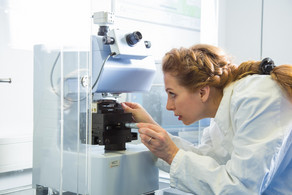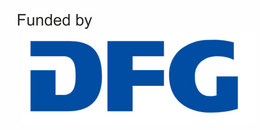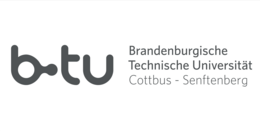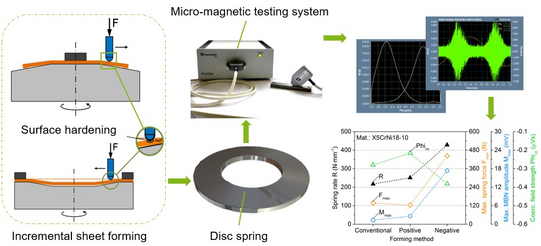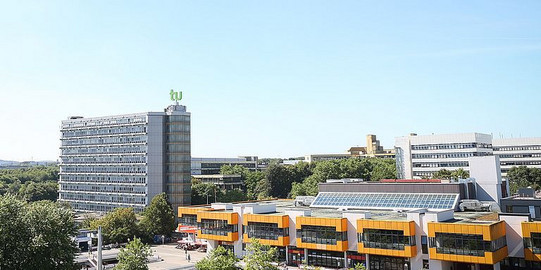The utilization of residual stresses induced by metal forming
In the Priority Program 2013 scientific basics for potential applications of deformation-induced residual stresses will be developed. Residual stresses have a great influence on the performance of components produced by forming procedures. So far, they are considered as a factor to be avoided with a largely negative effect on the manufacturability and lifetime of components. The main objective of the Priority Programme is to control and tailor the amount and distribution of deformation-induced residual stresses so that they have a positive influence on the relevant properties of the formed components.
Duration: 2018 until 2021
Subproject: Selective induction and stabilization of residual stresses in austenitic disc springs by incremental forming and integrated surface layer treatment
Disc springs are required to meet high fatigue resistance demands during their operation. Their fatigue resistance is limited by the operational tensile stresses. An induction of compressive residual stresses within tensile loaded areas contributes to the extension of their fatigue resistance. The application of conventional methods, like shot peening, is time and cost-intensive. The main objective of this project is to integrate the adjustment of residual stresses within the forming process of the disc springs to improve their resistance properties. For this purpose, a deeper understanding of the residual stresses formed during the incremental forming and their stability under static and cyclic loading is required. Also, deformation-induced martensite formation in metastable austenitic spring steels and its effect on residual stresses has to be characterized in general. A fast and reliable method for a more effective process chain monitoring will be developed by correlating the micromagnetic measurements with conventionally recorded residual stresses. Finally, by correlating of the manufacturing parameters with the micromagnetic measurements and the mechanical testing results, a model for the targeted adjustment of the residual stresses will be developed and established.
Duration: 2018 until 2021





